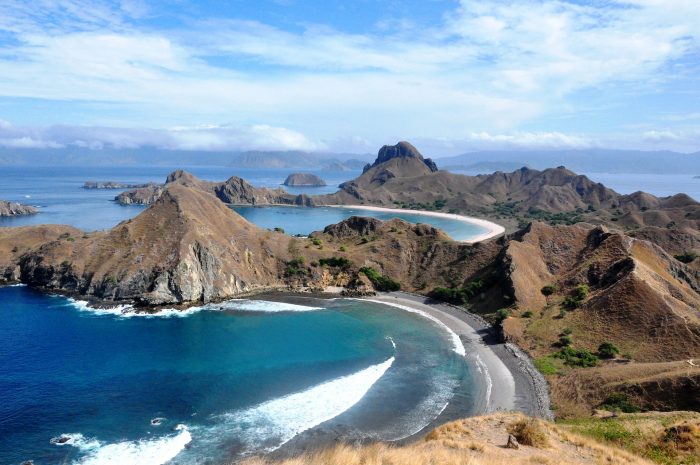It’s the start of a new decade and it looks like it’s going to be a prosperous one for Indonesia.
If you’re following Seven Stones Indonesia’s blogs or social media posts, you’ll be familiar with our positive tone on where Indonesia is heading. We know it’s not perfect and there are challenges to face up to, but Indonesia is addressing its problems and making changes to create a dynamic and competitive economy – one that’s worth taking seriously if you’re looking at making investments.
US-China Trade War
Of course, the global economic climate is a significant factor when we look at the prospects for Indonesia. For many analysts, it’s far from crystal clear. One of the most significant considerations is the US-China trade war and the impact this is having on economies around the world.
It’s difficult to say how long this is likely to last, especially considering recent developments in the Middle East, but a continued tit-for-tat approach is likely to have negative effects on both parties, and the rest of us. That’s not good for anyone.
Europe and Brexit
The situation in Europe, especially around Brexit, isn’t much better when we’re looking for stability. A recent Forbes article suggested, “the EU’s biggest economy, Germany, is set to slide into a recession”, and “Italy, the EU’s fourth-largest economy, was in a technical recession for the second half of 2018 and has faced continued economic woes from weak productivity, high unemployment, huge debts, and political turmoil.” (source: Forbes)
Palm Oil and Nickel
Then there’s the very sticky issue of palm oil, of which Indonesia is the world’s largest producer. The EU is decidedly anti-palm oil because of environmental issues surrounding deforestation, which impacts on its trade deals with Indonesia.
Indonesia is also the world’s largest producer of nickel ore, which Europe needs for its steel and EV battery industries, so Indonesia’s ban on nickel ore exports isn’t going down so well. Instead, Indonesia is focusing on developing its own local refineries and trading in much higher value, nickel-based commodities. This current impasse doesn’t help either party but they do also need each other in the long run.
Indonesian Opportunities
These global issues, however, present domestic opportunities. While the US and China lock horns, and the EU and Indonesia battle it out, attractive business opportunities are presenting themselves here, especially because new markets are being opened as trade agreements with other countries are being developed.
CEPA Agreement with Australia
One of the most important of these deals is with Australia. Both countries are in the process of ratifying something called the CEPA agreement – the Comprehensive Economic Partnership Agreement. This will create a framework for Australian and Indonesian businesses to expand and diversify economic partnerships.
EFTA Agreement
Then there’s a CEPA with non-EU, European countries including Switzerland, Norway, Lichtenstein, and Iceland, called EFTA, the European Free Trade Association. According to EFTA’s website, EFTA states and Indonesia will reciprocally remove all customs duties on imports of industrial products.
Indonesia’s Investment Climate
President Joko Widodo’s focus on economic development is having important effects. Trade deficits are being reduced, as are the needs for fuel subsidies and it’s all adding to a strengthening of the economy.
There’s a long way to go, but we think the train has left the station and more foreign investors are likely to take Indonesia a lot more seriously than they have done in the past.
We’re not alone. Recent reports in Bloomberg also support this outlook for Indonesia in 2020. One, in particular, suggests that “after two years of stagnant growth, Indonesian stocks will hit a record in 2020, when President Joko Widodo’s policies to shore up the economy take effect,” say analysts from JPMorgan and Morgan Stanley.
Indonesia Stock Exchange
The President opened the Indonesia Stock Exchange (IDX) on its first day of trading in 2020 on January 2 when he announced 55 new companies had listed their shares on the market. He said this was the highest number of listed stocks in ASEAN, the seventh highest in the world, and long-term fundraising had reached an impressive Rp877 trillion (approximately US$62.64 billion).
New Cabinet Clean Up
The new Minister of State-Owned Enterprises (BUMN), Erick Thohir, has rolled up his sleeves and set about cleaning things up. The state-owned companies of Pertamina and Garuda have both seen directors and c-suite executives removed in efforts to cut down on corruption and inefficiency.
Omnibus Law
An Omnibus law basically covers a number of diverse topics and we’re about to see the release of one in Indonesia. If reports are to be believed, areas being addressed will largely be around taxation and labour.
It sets a clear domestic road map, and we’re big fans of road maps! It strengthens the Investment Coordinating Board (BKPM) and the Online Single Submission (OSS) system that will allow for quick action on any investment issues and challenges.
They should also be able to extend further tax reductions and benefits, as well as offer strategic plans for investment and industry in various provinces.
Airport Investment
Last but not least, possibly one of the most momentous moves aimed at encouraging investment in Indonesia has been Singapore’s Changi Airports International Pte Ltd. being awarded a 25-year concession to operate Komodo Airport in Labuan Bajo, East Nusa Tenggara.
The consortium, which includes Changi and PT Cardig Aero Services, will invest some Rp1.2 trillion (approximately US$86 million) to expand the existing airport runway, aprons, and international terminals.
According to Reuters, an additional Rp5.7 trillion will also be invested into the airport’s operations. The natural spin-off from this is more investment in hotels and the tourism industry, including everything and anything supporting it.
This is the first time foreign operators have been allowed to operate an airport in Indonesia and there are strong signs it won’t be the last.
The roaring twenties have only just started and exciting times are ahead!
For more detailed information, overviews, and how Seven Stones Indonesia can be of service building bridges for cross border investments, please touch base at [email protected]
Sources: Forbes, The Jakarta Post, Department of Foreign Affairs and Trade, EFTA, Reuters, Bloomberg
Andy writes about tourism, real estate, environmental initiatives, and business opportunities in Indonesia across a number of platforms including Seven Stones Indonesia, Medium, Linkedin and Gapura Bali.




